
The Enchanting Green Venice of France
Marais Poitevin, also known as the 'Green Venice', is a stunning wetland area in western France. This unique destination is famous for its tranquil canals, lush greenery, and charming villages. Perfect for nature lovers, the Marais Poitevin offers a peaceful retreat from the hustle and bustle of city life. One of the best ways to explore Marais Poitevin is by boat. Traditional flat-bottomed boats, called 'barques', glide through the maze of canals, offering a serene and picturesque journey. Along the way, you can admire the diverse flora and fauna, including herons, kingfishers, and otters. The area is also a haven for bird watchers, with many species making their home in this protected natural environment. For those who prefer to stay on land, there are plenty of cycling and walking paths that wind through the region. These paths offer breathtaking views of the marshlands and the chance to discover quaint villages and historic sites. Don't miss the opportunity to visit the charming village of Coulon, often referred to as the 'capital' of the Marais Poitevin. Here, you can find traditional architecture, local markets, and delicious regional cuisine. Marais Poitevin is not just about nature; it also has a rich cultural heritage. Visitors can explore ancient abbeys, historic churches, and traditional watermills. The combination of natural beauty and cultural treasures makes Marais Poitevin a must-visit destination for anyone traveling to France.
Local tips in Marais Poitevin
- Best time to visit is from April to October when the weather is pleasant and the greenery is at its peak.
- Rent a traditional 'barque' for a unique and relaxing way to explore the canals.
- Bring binoculars for bird watching; the area is home to many rare and beautiful species.
- Try the local specialty, 'Angelica', a plant used in many regional dishes and drinks.
- Wear comfortable clothing and shoes for cycling or walking along the scenic paths.
The Enchanting Green Venice of France
Marais Poitevin, also known as the 'Green Venice', is a stunning wetland area in western France. This unique destination is famous for its tranquil canals, lush greenery, and charming villages. Perfect for nature lovers, the Marais Poitevin offers a peaceful retreat from the hustle and bustle of city life. One of the best ways to explore Marais Poitevin is by boat. Traditional flat-bottomed boats, called 'barques', glide through the maze of canals, offering a serene and picturesque journey. Along the way, you can admire the diverse flora and fauna, including herons, kingfishers, and otters. The area is also a haven for bird watchers, with many species making their home in this protected natural environment. For those who prefer to stay on land, there are plenty of cycling and walking paths that wind through the region. These paths offer breathtaking views of the marshlands and the chance to discover quaint villages and historic sites. Don't miss the opportunity to visit the charming village of Coulon, often referred to as the 'capital' of the Marais Poitevin. Here, you can find traditional architecture, local markets, and delicious regional cuisine. Marais Poitevin is not just about nature; it also has a rich cultural heritage. Visitors can explore ancient abbeys, historic churches, and traditional watermills. The combination of natural beauty and cultural treasures makes Marais Poitevin a must-visit destination for anyone traveling to France.
When is the best time to go to Marais Poitevin?
Iconic landmarks you can’t miss
Regional Natural Park of the Marais Poitevin
Explore the breathtaking landscapes and serene waterways of the Regional Natural Park of the Marais Poitevin, a natural paradise in western France.
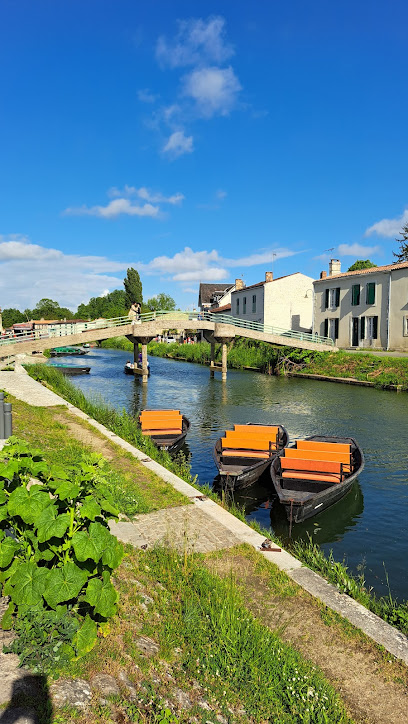
Pier of the Green Venice
Experience the serene beauty of the Green Venice with boat rentals, surrounded by stunning landscapes and tranquil waterways in Le Mazeau.
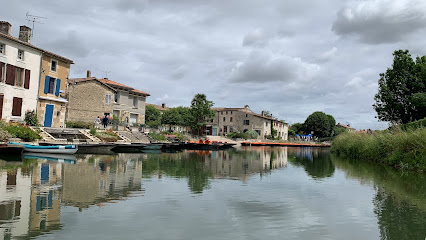
Donjon de Niort
Discover the enchanting Donjon de Niort, a medieval castle and museum that unveils the rich history and culture of Niort, France.
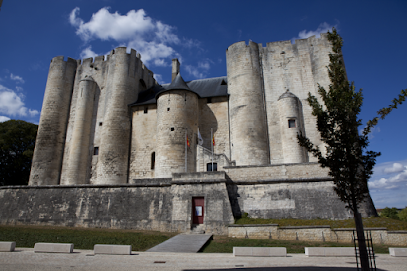
Pier Abbey
Explore the tranquil waterways of Marais Poitevin with Pier Abbey's boat rentals, surrounded by mesmerizing landscapes and rich history.
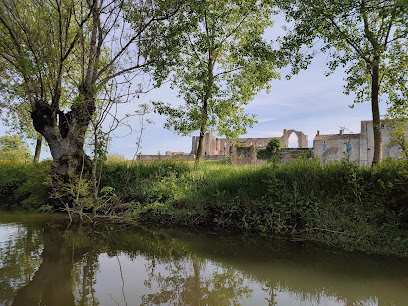
LES OISEAUX DU MARAIS POITEVIN Parc Ornithologique et Embarcadère
Experience nature's beauty at Les Oiseaux du Marais Poitevin, a premier ornithological park with boat rentals and delightful dining in France’s stunning wetlands.
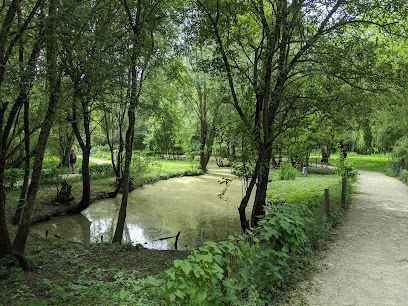
Embarcadère Prada
Discover the enchanting canals of Marais Poitevin with Embarcadère Prada, your gateway to scenic boat tours in the heart of France's Green Venice.
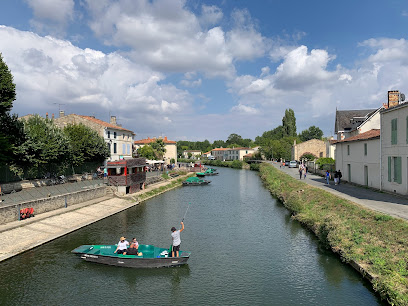
House of the Marais Poitevin
Explore the enchanting House of the Marais Poitevin in Coulon, a captivating museum celebrating the beauty and culture of France's unique marshlands.
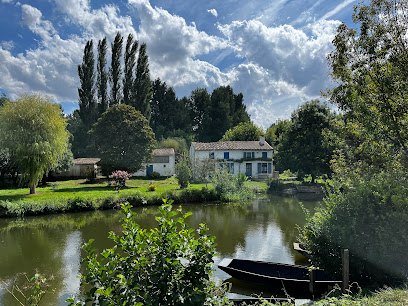
Château d'Oiron
Explore the enchanting Château d'Oiron, a captivating museum and castle blending art, history, and stunning architecture in the heart of France.
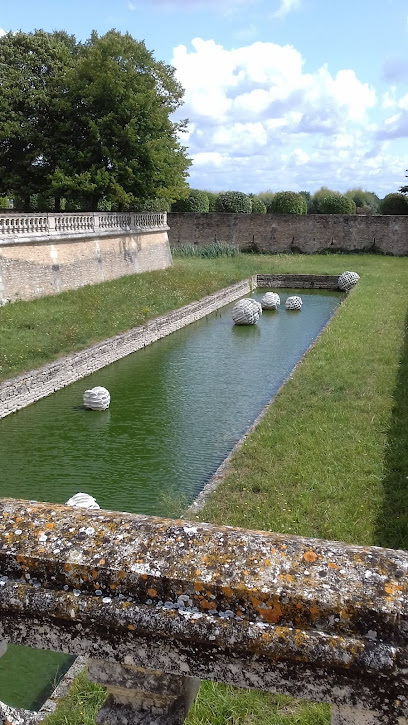
La Ferme du Marais Poitevin
Discover the charm of La Ferme du Marais Poitevin, a delightful guest house in the heart of the French countryside, perfect for families and nature lovers.
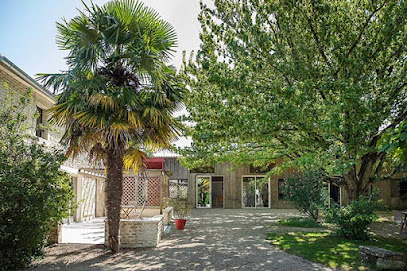
House Master of Dykes
Explore the House Master of Dykes in Chaillé-les-Marais, where history and nature intertwine in a captivating journey through France's rich heritage.
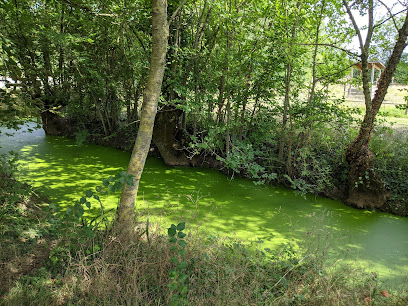
Sentier randonnée et vélo Marais Poitevin La Garette Le Vanneau Coulon
Discover the Marais Poitevin, a haven for hikers and cyclists, where nature's beauty and tranquility await at every turn.
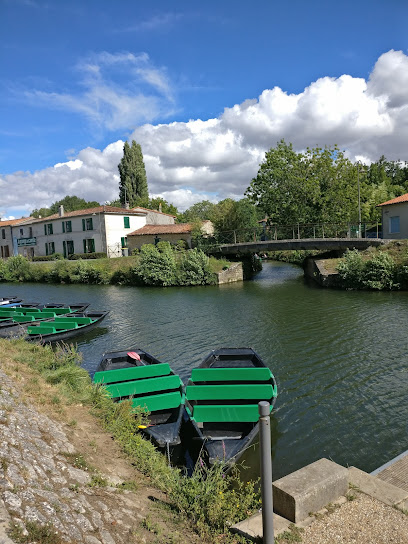
House of the Bay of the Marais Poitevin
Explore the House of the Bay of the Marais Poitevin, a captivating museum revealing the beauty and biodiversity of the Marais Poitevin wetlands.
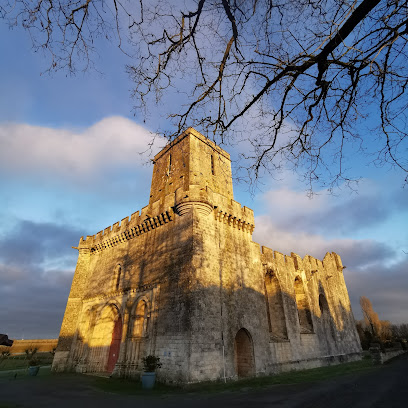
Marais poitevin
Experience the serene beauty of Marais Poitevin, France's enchanting 'Green Venice', ideal for relaxation, outdoor adventures, and delightful local cuisine.
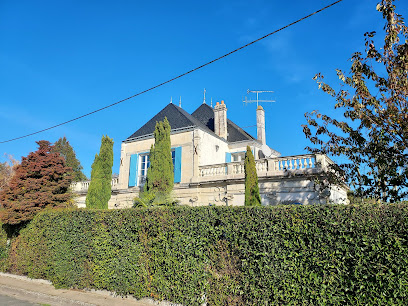
Pole-nature of the Marais Poitevin
Discover the ecological marvels of the Marais Poitevin at the Pole-nature, a wildlife refuge and environmental education center in Taugon, France.
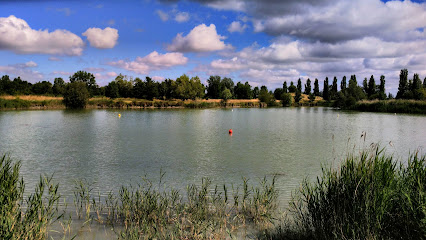
Réserve naturelle régionale du marais de la Vacherie
Experience the tranquil beauty and rich biodiversity of the Réserve Naturelle Régionale du Marais de la Vacherie, a serene nature preserve in Champagné-les-Marais.
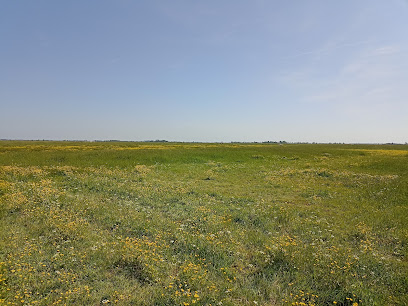
Unmissable attractions to see
La Rochelle Aquarium
Discover over 12,000 marine animals from the Atlantic, Mediterranean, and tropics at La Rochelle Aquarium, a leading European aquarium dedicated to education and conservation.
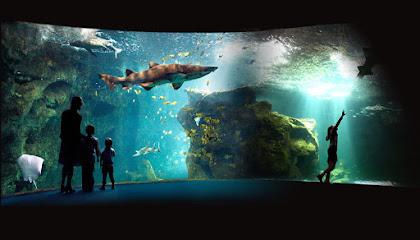
Chateau de la Roche Courbon
Discover a fairytale at Château de la Roche Courbon: Explore historic halls, wander through exquisite French gardens, and uncover prehistoric secrets in this enchanting Charente-Maritime gem.
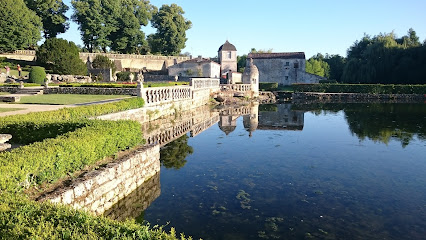
Bunker La Rochelle (Museum)
Explore a chillingly authentic WWII German U-boat command center in La Rochelle, featuring original nautical murals and a labyrinth of historical secrets, offering a unique glimpse into wartime life.
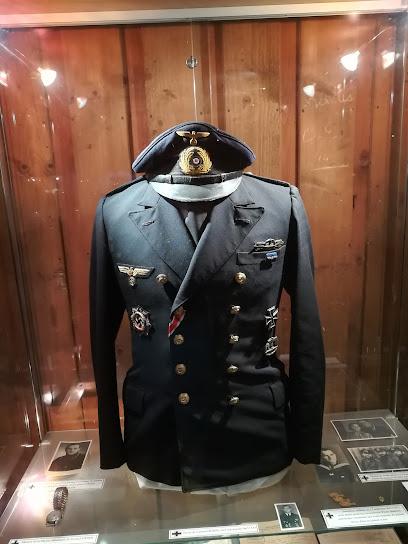
Embarcadère de la Maison du Marais
Discover the serene beauty of the Marais Poitevin from Longeville-sur-Mer: explore tranquil canals, encounter diverse wildlife, and immerse yourself in the natural charm of France's Green Venice.
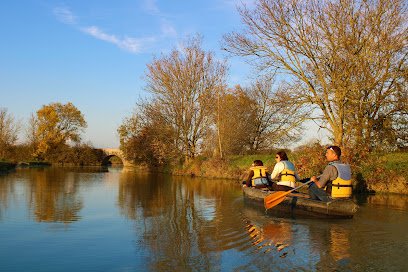
Donjon de Niort
Explore the Donjon de Niort, a medieval castle with centuries of history, offering panoramic views and captivating exhibits in the heart of Niort, France's Nouvelle-Aquitaine region.
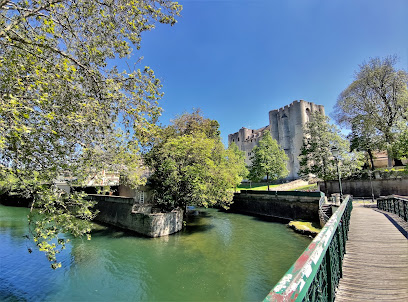
Plage de la Concurrence
Discover Plage de la Concurrence in La Rochelle: a central urban beach with fine sands, stunning views, and a vibrant atmosphere, perfect for relaxation and seaside fun.
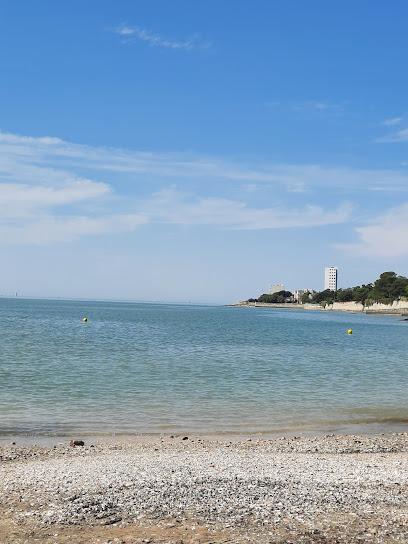
Port Boinot
Discover Niort's revitalized heart at Port Boinot: a blend of history, nature, and culture in a stunning urban park, once home to the Boinot factories, now a vibrant green space.
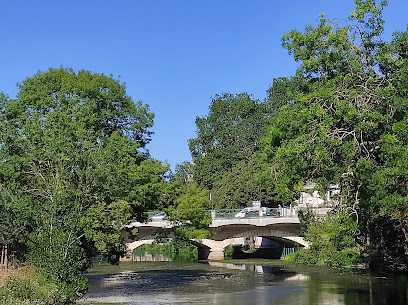
Tumulus of Bougon
Explore the ancient Tumulus of Bougon, a captivating Neolithic site in France with monumental burial mounds and a fascinating museum, offering a unique journey through prehistoric times.
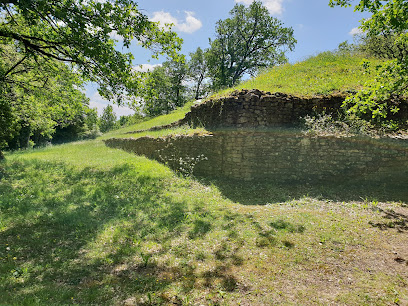
House of the Marais Poitevin
Discover the enchanting history and ecology of the Poitevin marshlands at the House of the Marais Poitevin in Coulon, France.
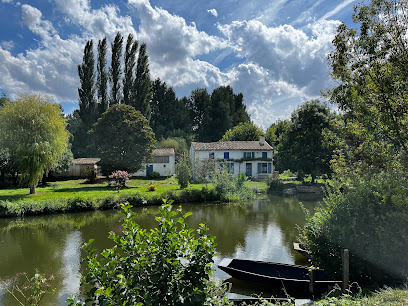
Arçais Embarcadère Au Martin-pêcheur
Discover the enchanting waterways of Marais Poitevin from Arçais Embarcadère Au Martin-pêcheur. Boat, canoe, and kayak rentals available for an unforgettable exploration of the Green Venice.
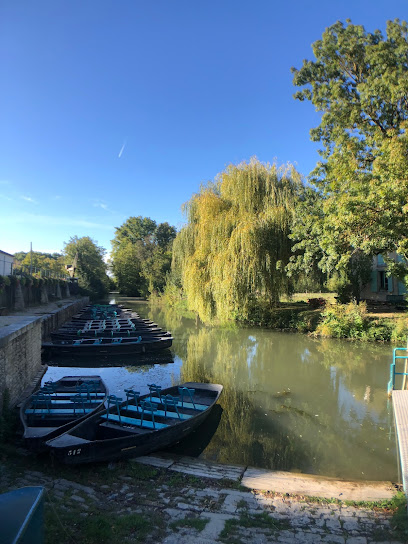
From Abbey Nieul-sur-l'Autise
Discover the architectural beauty and rich history of the Abbey of Nieul-sur-l'Autise, a serene escape in the heart of France's Vendée region.
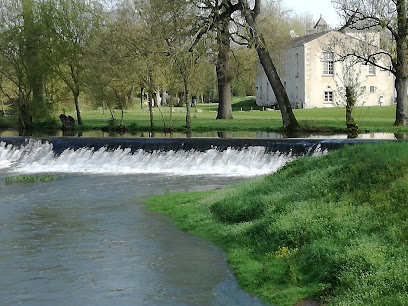
Château de Dampierre-sur-Boutonne
Discover a Renaissance masterpiece in the heart of Vals de Saintonge, where history, art, and nature converge to create an unforgettable experience at Château de Dampierre-sur-Boutonne.
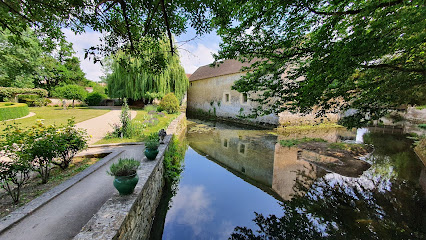
Fontaine royale de Lupin
Explore the exquisite Fontaine Royale de Lupin, a historical landmark in Saint-Nazaire-sur-Charente, showcasing stunning artistry and serene gardens.
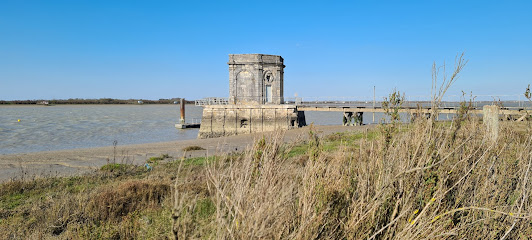
Réserve naturelle du marais d'Yves
Discover a coastal paradise at Réserve Naturelle du Marais d'Yves, a haven for migratory birds and diverse wildlife between La Rochelle and Rochefort, offering guided tours and stunning landscapes.
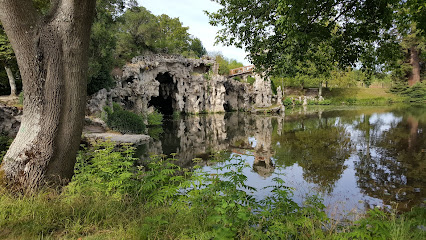
Embarcadère des écluses de Bazoin
Explore the enchanting Marais Poitevin from the Embarcadère des Écluses de Bazoin: boat trips, kayaking, cycling, and local flavors await in this 'Green Venice' haven.
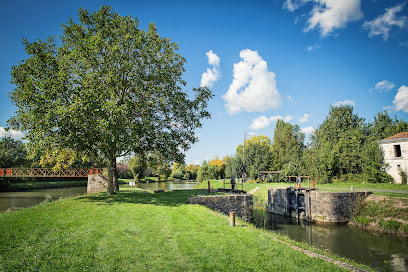
Essential places to dine
Domaine de La Tuilerie
Experience authentic French cuisine at Domaine de La Tuilerie in Bessines, where delightful flavors meet stunning surroundings.
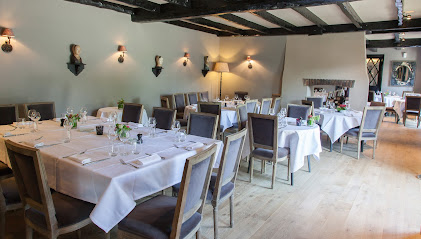
Auberge _ de la Roussille
Discover fine dining at Auberge de la Roussille, where exquisite French cuisine meets elegant ambiance in Niort.
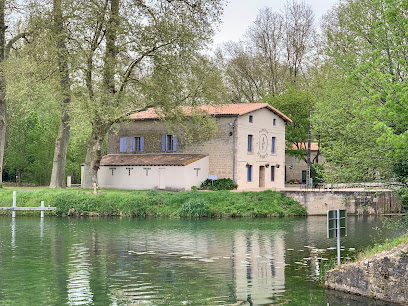
La Pigouille
Experience exquisite French cuisine at La Pigouille while enjoying scenic boat rentals in the heart of Coulon's beautiful waterways.
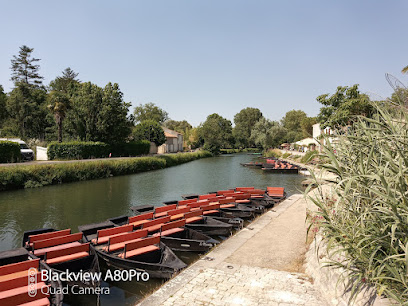
L'Atelier Gourmand
Experience authentic French cuisine at L'Atelier Gourmand in Coulon – a culinary haven offering exquisite flavors and charming ambiance.
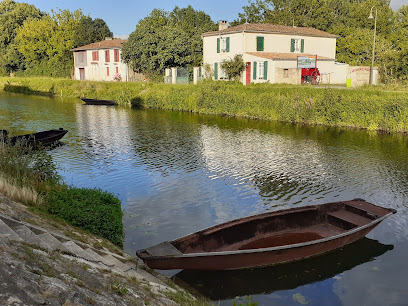
Restaurant La Passerelle | Spécialités d'anguilles et galettes
Discover authentic French cuisine at Restaurant La Passerelle in Coulon, specializing in eel dishes and delightful galettes amidst stunning waterfront views.
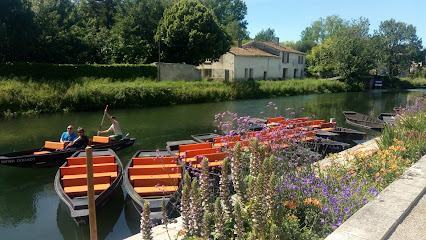
La Belle Etoile
Discover the elegance of Haute French cuisine at La Belle Etoile in Niort - where every dish tells a story.
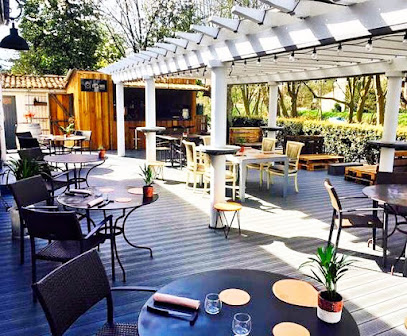
Café de L'Escale
Experience authentic French crêpes and refreshing drinks at Café de L'Escale in scenic Coulon.
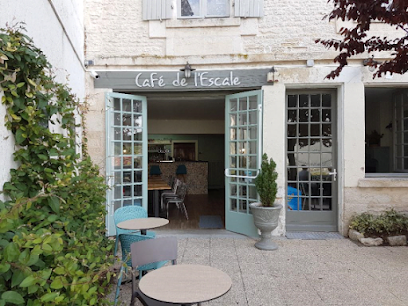
Brasserie de la Repentie
Discover authentic French cuisine at Brasserie de la Repentie in Magné – where tradition meets taste in a cozy atmosphere.
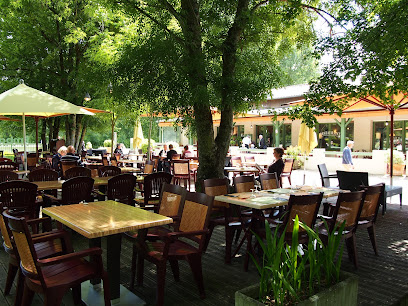
Auberge de l'Ecluse
Discover authentic French cuisine at Auberge de l'Ecluse in Coulon – where tradition meets taste by the beautiful Sèvre River.
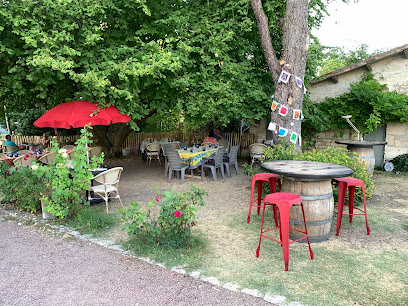
Le bœuf en écailles
Experience authentic French cuisine at Le bœuf en écailles in Magné – where every dish tells a story.
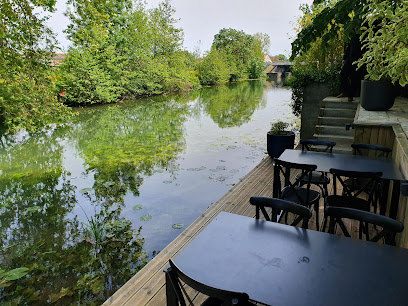
Les étangs de Julie
Experience authentic French cuisine at Les étangs de Julie in La Ronde—where every dish tells a story.
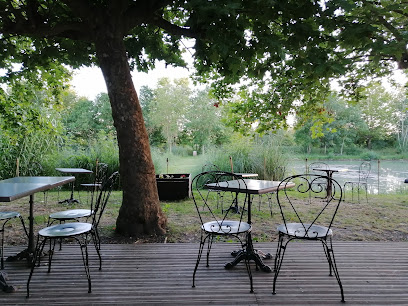
La Terrasse
Experience authentic French cuisine at La Terrasse in Damvix - where every dish tells a story.
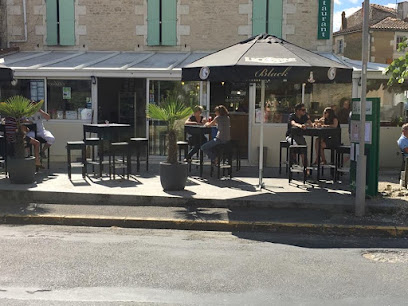
Restaurant L'Echauguette - Terrasse au bord de l'eau
Experience exquisite waterfront dining at Restaurant L'Echauguette in Maillezais—where every meal comes with breathtaking views.
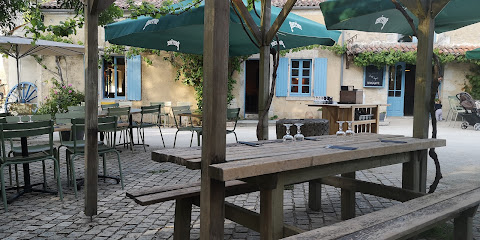
Restaurant le Carré d'Eau
Discover the essence of French cuisine at Restaurant le Carré d'Eau in Magné – where local flavors meet culinary excellence.
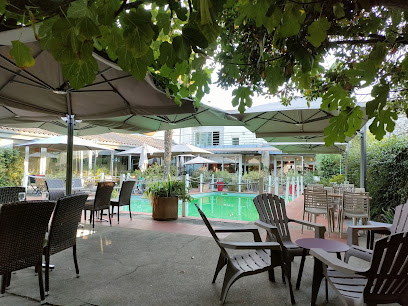
Le Marais
Experience authentic French cuisine at Le Marais in Damvix - indulge in delicious dishes and fine wines in a charming setting.
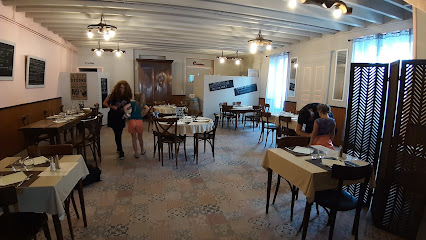
Markets, malls and hidden boutiques
Regional Natural Park of the Marais Poitevin
Discover the enchanting beauty of the Regional Natural Park of the Marais Poitevin, a serene nature preserve in France perfect for outdoor adventures.
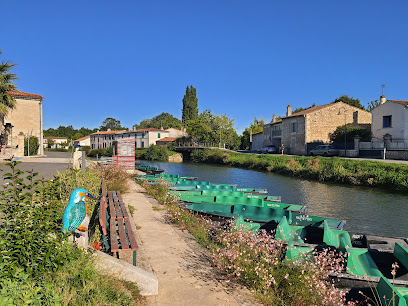
French Coffee Shop
Experience the authentic taste of France at the French Coffee Shop in Niort, where delightful pastries and exquisite coffee await.
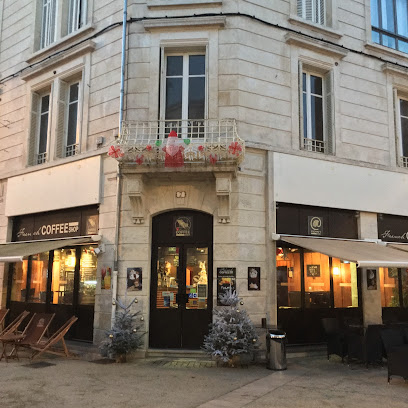
Super U et Drive
Super U et Drive in Magné: Your one-stop supermarket for groceries, car rentals, and local delicacies, ensuring a seamless experience for every traveler.
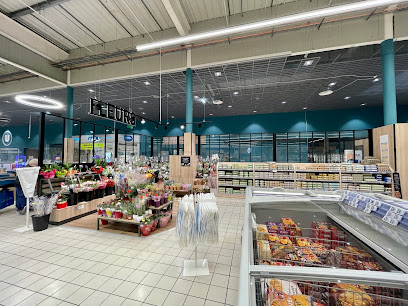
Arçais Embarcadère Au Martin-pêcheur
Discover adventure and tranquility at Arçais Embarcadère Au Martin-pêcheur, your gateway to scenic boat and bicycle rentals in the heart of nature.
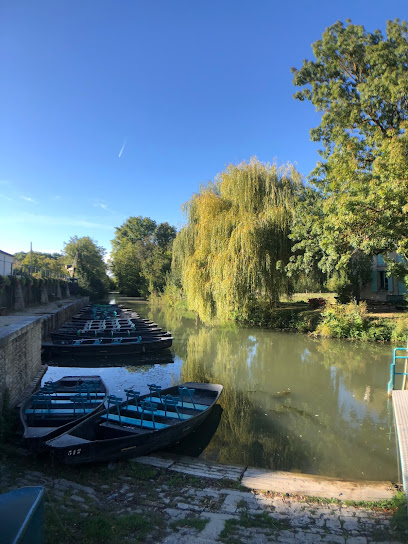
Restaurant La Passerelle | Spécialités d'anguilles et galettes
Experience the best of French cuisine at Restaurant La Passerelle in Coulon, specializing in eels and galettes in a stunning riverside setting.
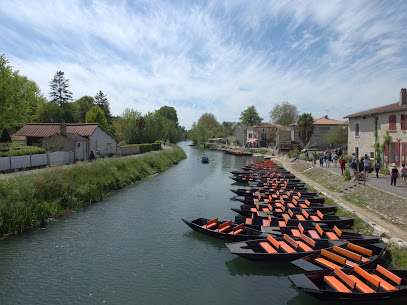
Café de L'Escale
Experience the essence of Coulon at Café de L'Escale, where delightful crêpes and refreshing drinks await in a picturesque riverside setting.
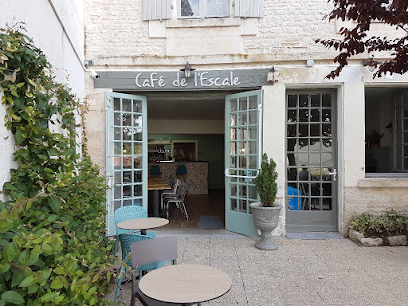
Le Fournil du Marais
Experience the authentic taste of France at Le Fournil du Marais, a charming bakery in Niort offering fresh pastries and artisanal bread.
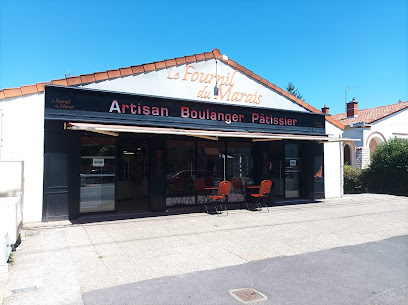
Embarcadères de Damvix La Grenouille Bleue Balades en barque dans le Marais Poitevin
Explore the serene waterways of Marais Poitevin at Embarcadères de Damvix, the perfect destination for boating and nature lovers.
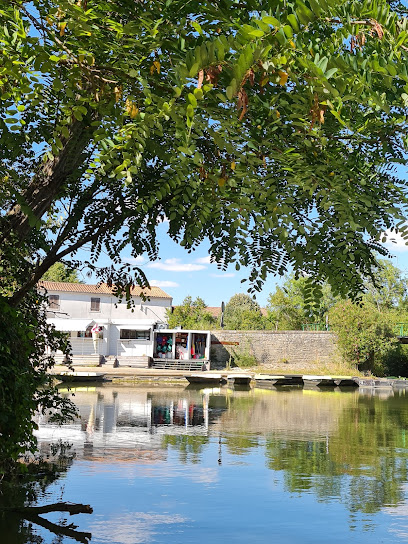
Mam'zelleAngele
Discover the exquisite flavors of France at Mam'zelleAngele, a delightful restaurant and creperie in the heart of Coulon.
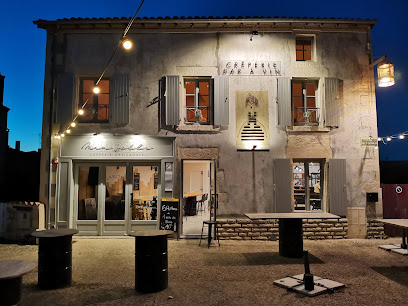
Au Marais Givré
Discover the charm of Au Marais Givré in Coulon - a delightful bar and gourmet grocery store offering local wines, craft beers, and artisanal ice cream.
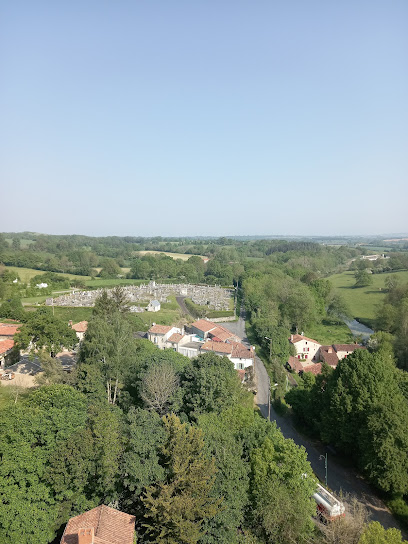
The Ruralies sarl - House of Local Products
Explore The Ruralies sarl for an authentic taste of Poitou-Charentes, featuring local delicacies and unique handcrafted gifts in Aiffres.
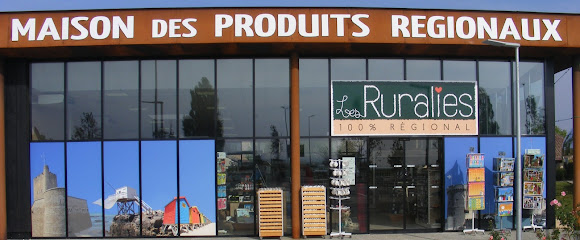
Crêperie du Bief
Experience the authentic taste of Brittany at Crêperie du Bief, where sweet and savory crêpes delight every palate in a charming setting.
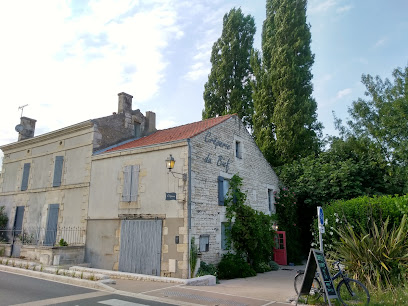
Embarcadère La Trigale - Le Marais Poitevin
Experience the serenity of Le Marais Poitevin at Embarcadère La Trigale with scenic boat and bicycle rentals amidst breathtaking landscapes.
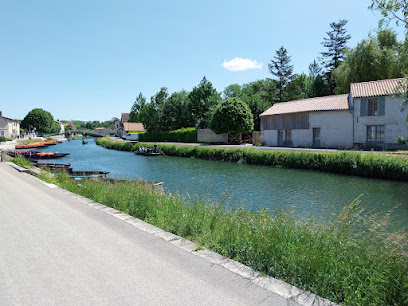
Le Coin des Animo
Explore Le Coin des Animo, the ultimate pet store in Courçon, where quality products meet passionate service for every animal lover.
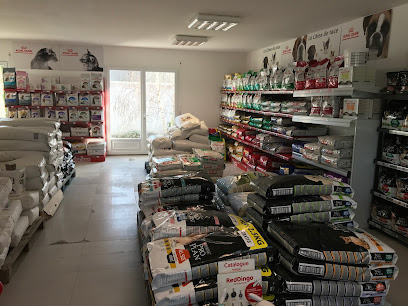
CULTURE VELO NIORT-BESSINES
Unleash your cycling spirit at Culture Vélo Niort-Bessines, where quality bicycles and expert repairs meet the beauty of Bessines' landscapes.
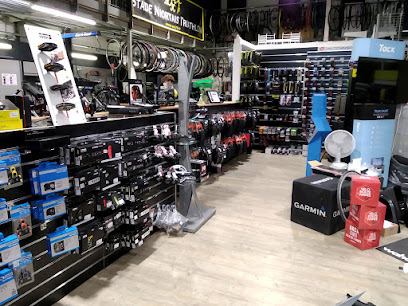
Essential bars & hidden hideouts
La Pigouille
Experience the best of local cuisine and scenic boat rentals at La Pigouille, a charming riverside restaurant in Coulon.
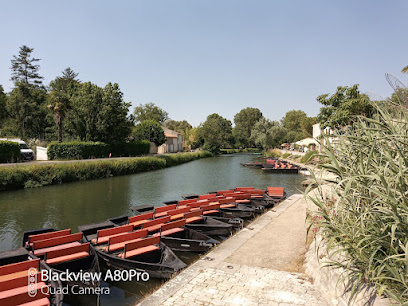
V and B Niort
Discover the vibrant atmosphere of V and B Niort, where craft beer and fine wine meet in a charming setting perfect for relaxation and enjoyment.
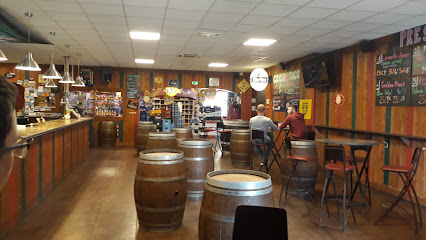
Sarl Bar Des Ailes
Discover the charm of French cuisine at Sarl Bar Des Ailes, a cozy restaurant and bar in Niort offering delightful dishes and a warm atmosphere.
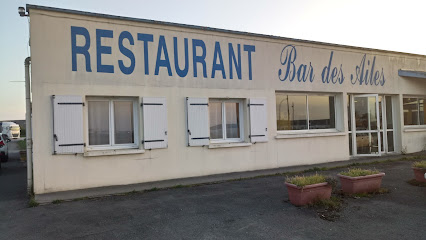
Café de L'Escale
Experience the authentic flavors of France at Café de L'Escale, a charming crêperie and bar set against the stunning backdrop of Coulon's waterways.
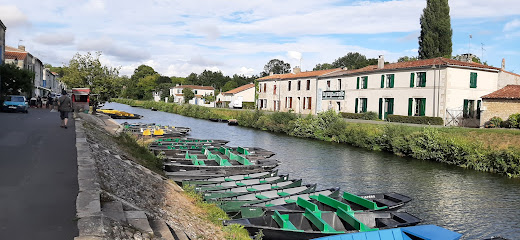
TEMPLE BAR
Discover the lively atmosphere of Temple Bar in Niort, where great drinks, live music, and good company create unforgettable nights.
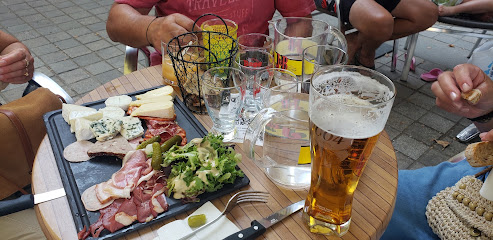
Brasserie de la Repentie
Discover the culinary charm of Brasserie de la Repentie in Magné, where authentic French cuisine meets a cozy atmosphere.
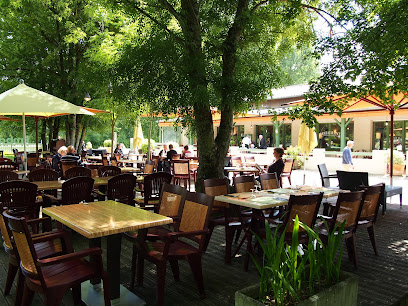
Auberge de l'Ecluse
Discover the essence of French cuisine at Auberge de l'Ecluse, where culinary tradition meets scenic beauty in Coulon.
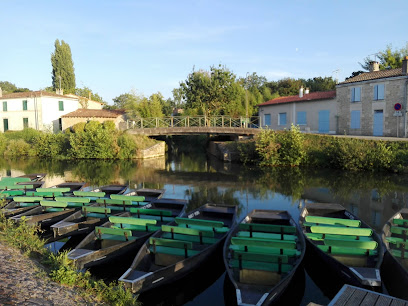
Le Marais
Experience the authentic flavors of France at Le Marais, a charming restaurant and wine bar in the heart of Damvix.
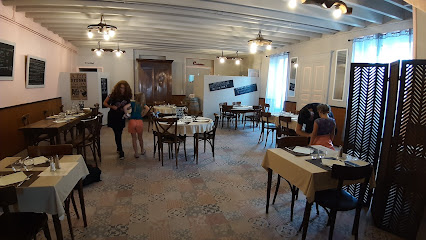
11 Bis Troquet Lounge
Discover the lively ambiance and exquisite cocktails at 11 Bis Troquet Lounge, a must-visit cocktail bar in Niort's vibrant nightlife scene.
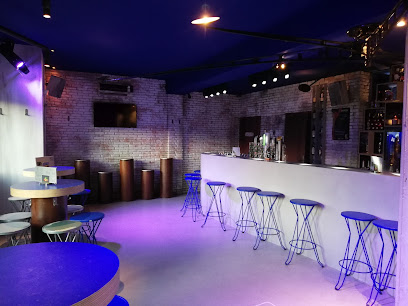
Mam'zelleAngele
Discover authentic French cuisine at Mam'zelleAngele in Coulon, where savory crepes and local flavors create an unforgettable dining experience.
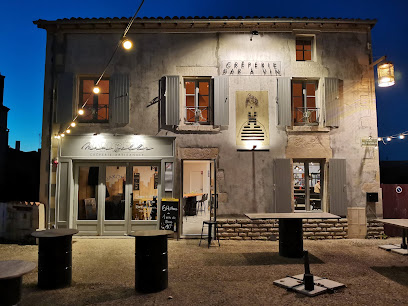
Au Marais Givré
Discover the flavors of Coulon at Au Marais Givré, a unique spot for gourmet groceries, local beers, and delightful ice creams.
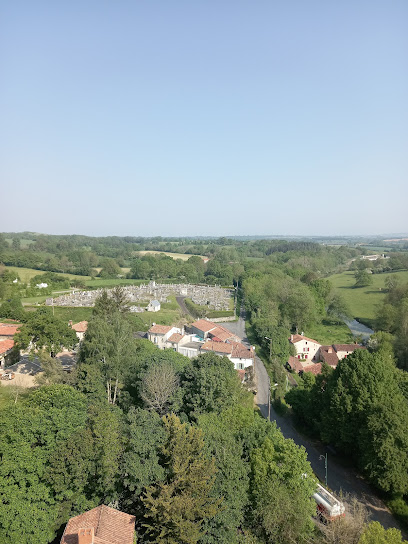
AU BORD DE L'EAU
Discover the flavors of France at Au Bord De L'Eau, where culinary artistry meets breathtaking waterfront views.
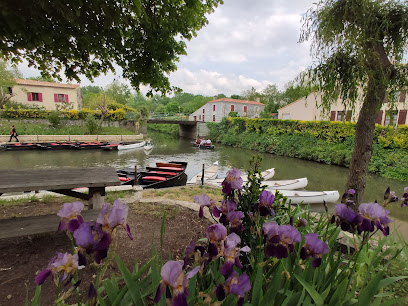
LE CROQUE BEDAINE
Savor the flavors of Niort at Le Croque Bedaine, where fast food meets bar culture for a unique dining experience.
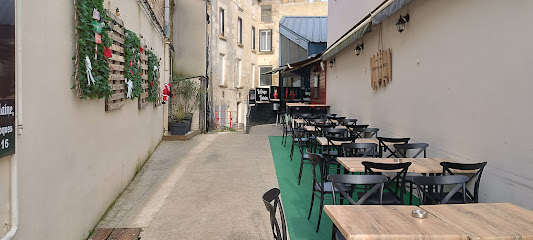
Le Chêne Vert - Restaurant, Bar, PMU, FDJ, Soirées Concert
Experience the heart of French cuisine and vibrant nightlife at Le Chêne Vert in Magné, a perfect blend of tasty dishes and live music.
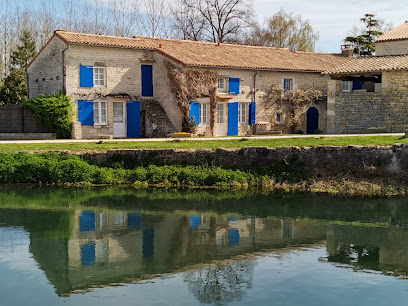
Local Phrases about Marais Poitevin
-
- HelloBonjour
[bohn-zhoor] - GoodbyeAu revoir
[oh ruh-vwahr] - YesOui
[wee] - NoNon
[nohn] - Please/You're welcomeS'il vous plaît/De rien
[seel voo pleh/dee ryehn] - Thank youMerci
[mehr-see] - Excuse me/SorryExcusez-moi/Désolé
[ehks-kew-zay mwah/deh-zoh-lay] - How are you?Comment ça va?
[koh-mohn sah vah] - Fine. And you?Bien. Et vous?
[byehn/ay voo] - Do you speak English?Parlez-vous anglais?
[par-lay voo ahn-glay] - I don't understandJe ne comprends pas
[zhuh nuh kohm-prahnd pah]
- HelloBonjour
-
- I'd like to see the menu, pleaseJe voudrais voir le menu, s'il vous plaît
[zhuh voo-dray vwahr luh meh-noo, seel voo pleh] - I don't eat meatJe ne mange pas de viande
[zhuh nuh mahnj pah duh vyand] - Cheers!Santé!
[sahn-tay] - I would like to pay, pleaseJe voudrais payer, s'il vous plaît
[zhuh voo-dray pay-yay, seel voo pleh]
- I'd like to see the menu, pleaseJe voudrais voir le menu, s'il vous plaît
-
- Help!Au secours!
[oh se-koo] - Go away!Allez-vous-en!
[ah-lay voo zahn] - Call the Police!Appelez la police!
[ah-pay-lay lah poh-lees] - Call a doctor!Appelez un médecin!
[ah-pay-lay uh mayd-sehn] - I'm lostJe suis perdu
[zhuh swee pehr-doo] - I'm illJe suis malade
[zhuh swee mah-lahd]
- Help!Au secours!
-
- I'd like to buy...Je voudrais acheter...
[zhuh voo-dray zheh-tay] - I'm just lookingJe regarde juste
[zhuh ruh-gahrd zhehst] - How much is it?Combien ça coûte?
[kohm-byen sah koot] - That's too expensiveC'est trop cher
[say troh shair] - Can you lower the price?Pouvez-vous baisser le prix?
[poo-veh voo beh-say luh pree]
- I'd like to buy...Je voudrais acheter...
-
- What time is it?Quelle heure est-il?
[kell uhr ay eel] - It's one o'clockIl est une heure
[eel ay ehn uhr] - Half past (10)Dix et demie
[dees ay duh-mee] - MorningMatin
[mah-tahn] - AfternoonAprès-midi
[ah-pray mee-dee] - EveningSoir
[swahr] - YesterdayHier
[ee-ehr] - TodayAujourd'hui
[oh-zhoor-dwee] - TomorrowDemain
[duh-mahn] - 1Un
[uhn] - 2Deux
[duh] - 3Trois
[trwah] - 4Quatre
[kat-ruh] - 5Cinq
[sank] - 6Six
[sees] - 7Sept
[set] - 8Huit
[wheat] - 9Neuf
[nurf] - 10Dix
[dees]
- What time is it?Quelle heure est-il?
-
- Where's a/the...?Où est...?
[oo ay] - What's the address?Quelle est l'adresse?
[kell ay la-dress] - Can you show me (on the map)?Pouvez-vous me montrer (sur la carte)?
[poo-veh voo muh mohn-tray (surr lah kart)] - When's the next (bus)?Quand est le prochain (bus)?
[kahn ay luh pro-shahn (boos)] - A ticket (to ....)Un billet (pour ....)
[uhn bee-yay (poor)]
- Where's a/the...?Où est...?
History of Marais Poitevin
-
The Marais Poitevin, also known as the Green Venice, is an extensive marshland that began forming around 10,000 years ago, following the last Ice Age. Originally part of the Gulf of Pictons, the area began to silt up gradually, leading to the formation of extensive wetlands. This natural evolution created a unique landscape that would later become a focal point for human settlement and agricultural development.
-
During the Roman era, the Marais Poitevin was utilized for its fertile lands. The Romans were the first to attempt drainage and cultivation of the marshlands. They constructed early drainage systems that laid the groundwork for future agricultural activities. Their influence on the region is evident from remnants of Roman roads and settlements discovered in the area.
-
In the Middle Ages, monastic communities significantly contributed to the development of Marais Poitevin. Abbeys like the Abbey of Maillezais played a crucial role in draining the marshes and converting them into arable land. The monks dug canals and built dykes, creating a network that improved agricultural productivity. This period marked the transformation of the marshland into a more structured and habitable landscape.
-
In the 17th century, Dutch engineers were invited to Marais Poitevin to enhance the existing drainage systems. Their expertise led to the construction of additional canals and the establishment of a more efficient water management system. This period saw significant improvements in land reclamation and agricultural output, solidifying the region's reputation as a fertile and productive area.
-
By the 19th century, the Marais Poitevin had developed into an intricate network of canals, earning the nickname 'Green Venice.' The local culture evolved around this unique landscape, with traditional flat-bottomed boats known as 'barques' becoming a common mode of transportation. The region's distinct identity emerged through its waterways, local architecture, and agricultural practices, which have been preserved and celebrated to this day.
-
In recent decades, efforts have been made to preserve the Marais Poitevin's unique ecosystem. Recognized as a Regional Natural Park in 1979, the area has been the focus of various conservation projects aimed at protecting its biodiversity and cultural heritage. These initiatives seek to balance agricultural use with environmental sustainability, ensuring that the Marais Poitevin remains a treasured natural and cultural landmark.
Marais Poitevin Essentials
-
Marais Poitevin, often referred to as the 'Green Venice of France', is situated in the western part of the country. The nearest major city is La Rochelle, which has an international airport (La Rochelle – Île de Ré Airport). From La Rochelle, you can rent a car or take a regional train to Niort, a key gateway to the Marais Poitevin. Alternatively, you can fly into Nantes Atlantique Airport or Bordeaux-Mérignac Airport, both of which are a couple of hours' drive away. Regular train services from Paris also connect to Niort, taking around 2.5 hours.
-
Once in Marais Poitevin, the best way to explore the area is by bicycle or boat. There are numerous rental shops for both options in towns like Coulon and Arçais. For those who prefer public transport, local buses connect the main towns, though services can be infrequent. Renting a car provides greater flexibility, especially for visiting the more remote areas of the wetlands. Walking is also a pleasant way to explore the picturesque villages and natural landscapes.
-
The official currency in France is the Euro (EUR). Credit and debit cards are widely accepted in most hotels, restaurants, and shops in Marais Poitevin. However, it is advisable to carry some cash, particularly for smaller establishments, markets, and rural areas. ATMs are available in major towns like Niort and Coulon. Be sure to inform your bank of your travel plans to avoid any issues with card transactions.
-
Marais Poitevin is generally a safe destination for tourists. However, as with any travel destination, it's important to stay vigilant. Petty crimes like pickpocketing can occur in busier tourist spots, so keep an eye on your belongings. Avoid isolated areas after dark, especially if you are not familiar with the area. There are no specific high-crime areas targeting tourists, but always practice common sense and standard safety precautions.
-
In case of an emergency, dial 112, the European emergency number, for immediate assistance. Medical facilities are available in Niort, the largest nearby town. It's recommended to have travel insurance that covers medical emergencies. Pharmacies are accessible in most towns where you can obtain over-the-counter medications. For non-urgent issues, local tourist information centers can provide assistance and guidance.
-
Fashion: Do dress comfortably and appropriately for outdoor activities, especially if you plan to explore the wetlands by boat or bike. Don't wear overly flashy or revealing clothing, as it may be considered disrespectful in rural areas. Religion: Do respect local customs, especially when visiting churches or religious sites. Public Transport: Do be courteous and offer seats to elderly passengers. Don’t eat or drink on public transport. Greetings: Do greet people with a polite 'Bonjour' (Good day) and a handshake. Eating & Drinking: Do try local specialties such as 'Mogette' beans and 'Angelica' liqueur. Don’t refuse food or drink offerings, as it is considered impolite.
-
To experience Marais Poitevin like a local, consider visiting during the quieter shoulder seasons of spring or fall. Rent a traditional flat-bottomed boat (barque) for a serene trip through the canals. Engage with locals at markets and small cafes, especially in towns like Coulon, to learn more about the region's culture and history. Don’t miss exploring the village of La Garette, known for its charming houses and gardens, and sampling the local cuisine, particularly the fresh produce and dairy products.
Trending Landmarks in Marais Poitevin
-
Regional Natural Park of the Marais Poitevin
-
Pier of the Green Venice
-
Donjon de Niort
-
Pier Abbey
-
LES OISEAUX DU MARAIS POITEVIN Parc Ornithologique et Embarcadère
-
Embarcadère Prada
-
House of the Marais Poitevin
-
Château d'Oiron
-
La Ferme du Marais Poitevin
-
House Master of Dykes
-
Sentier randonnée et vélo Marais Poitevin La Garette Le Vanneau Coulon
-
House of the Bay of the Marais Poitevin
-
Marais poitevin
-
Pole-nature of the Marais Poitevin
-
Réserve naturelle régionale du marais de la Vacherie
Nearby Cities to Marais Poitevin
-
Things To Do in Nantes
-
Things To Do in Angers
-
Things To Do in Bordeaux
-
Things To Do in Tours
-
Things To Do in Limoges
-
Things To Do in Rennes
-
Things To Do in Saint-Malo
-
Things To Do in Caen
-
Things To Do in St. Clement
-
Things To Do in St. Helier
-
Things To Do in Gorey
-
Things To Do in St. Aubin
-
Things To Do in St. Brelade
-
Things To Do in St. Peter
-
Things To Do in St. Lawrence










